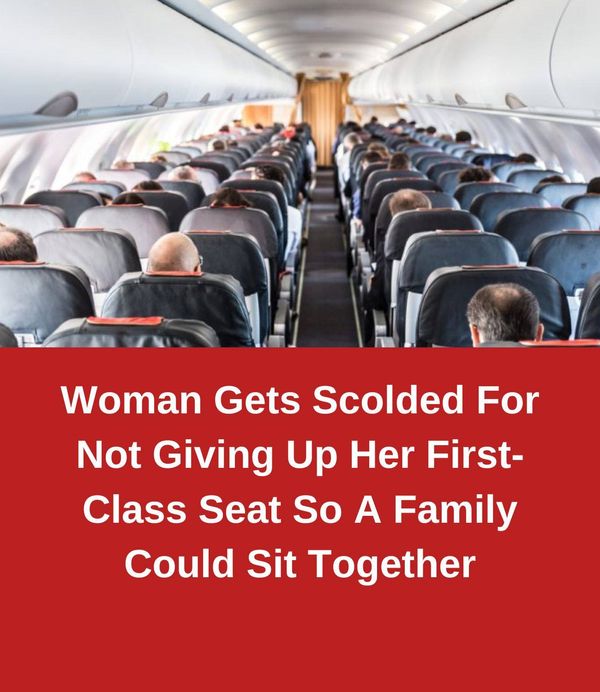
Airline etiquette is a hot topic of conversation these days, and a recent incident has ignited a debate about the responsibilities of passengers when it comes to seat arrangements. The controversy started when a 23-year-old frequent flyer refused to switch seats with a 10-year-old boy, leaving him alone in economy class while his parents enjoyed first-class comfort. This incident has raised questions about compassion, social norms, and the evolving dynamics of air travel.
The incident came to light when the unnamed passenger shared her experience on Reddit. She revealed that she and the parents of the young boy were upgraded to first class, leaving the child behind in economy. Instead of agreeing to swap seats with the child, the passenger chose to remain in first class, which sparked backlash from both the online community and the broader public.
This incident serves as a poignant example of the tensions that can arise during air travel. Passengers’ desire for comfort and convenience sometimes clash with their responsibilities to fellow travelers. The young boy’s parents, who opted for the first-class upgrade, unintentionally left their child to navigate the flight alone in economy class. While the passenger’s decision may seem unkind to some, it highlights the complexity of individual choices and the lack of clear guidelines for such situations.
This incident is not the only one that has sparked conversations about in-flight etiquette. Just days before, a pharmacist made headlines for refusing to give up her seat to allow a mother and her teenage child to sit together. Both incidents reveal the intricate social dynamics of air travel, where cramped conditions, varying degrees of comfort, and personal preferences can create conflicts.
The anonymous passenger’s post on Reddit, titled “Am I the A**hole,” garnered a flurry of responses, with users debating the ethics of her decision. Many argued that the boy’s parents should take responsibility for their choice to upgrade while leaving their child behind. Others criticized the passenger for her lack of empathy, emphasizing that common decency should prevail in such situations.
This incident highlights the evolving norms and expectations of air travel. While first-class cabins were once reserved for the privileged few, today’s travel landscape is more diverse, with passengers from all walks of life sharing the same aircraft. This diversity brings a multitude of perspectives and expectations, further complicating the already intricate web of social interactions on a flight.
Ultimately, this incident raises broader questions about personal responsibility, compassion, and the role of airlines in managing such situations. While airlines do not typically dictate passenger seat assignments, this occurrence emphasizes the need for clearer guidelines and passenger education to prevent similar incidents in the future.
As air travel continues to evolve, the challenges of sharing confined spaces with strangers will persist. The incident involving the 10-year-old boy and the passenger’s refusal to switch seats serves as a stark reminder of the complexities that can arise when individual desires collide with social expectations. It is a testament to the fact that, in today’s world, the skies are not only filled with airplanes but also with a tapestry of human stories, choices, and interactions that shape the journey for all on board.



